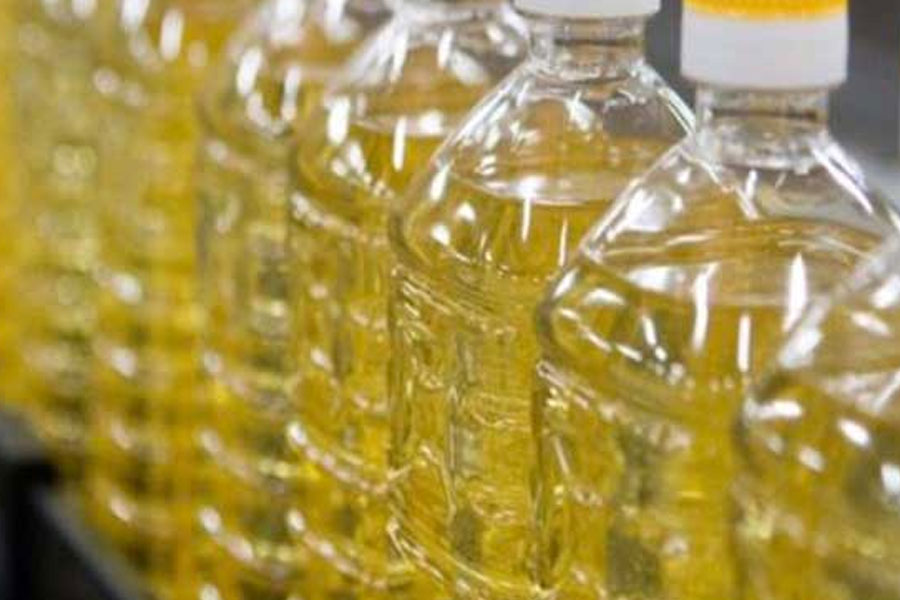
Radar | Jan 03,2021
Feb 1 , 2020
By GELILA SAMUEL ( FORTUNE STAFF WRITER
)
Ethiopian-born diaspora can now import basic food items using their own foreign currency, according to a new directive issued by the Ministry of Trade & Industry.
Approved two weeks ago, the directive allows the diaspora and companies owned by business people of Ethiopian origin to import edible oil, sugar and wheat through a franco valuta license. The trading business of these commodities was previously reserved for the state enterprises and a few selected local companies. The move was made as part of a new exit strategy from the government to end its own focus on importing basic food items.
A member of the diaspora who can bring a document showing an overseas bank account that has been active for two years and has a balance of 1.5 million dollars can secure a license from the Ministry. The documents are also subjected to scrutiny from the respective embassy or consulate where the bank account of the applicant is located.
The Ministry approved the directive, which was drafted in cooperation with the National Bank of Ethiopia, the Ministry of Finance, and the macroeconomic committee, on January 14, 2020. The new directive, which was in the making for four months, also allowed the diaspora to import other food items.
The Trade Ministry drafted the directive following a letter from the Ministry of Finance at the end of October. Then the National Bank of Ethiopia forwarded the criteria for diaspora to be approved under the franco valuta scheme.
“We believe this will alleviate the current supply-side constraint on basic food items,” Eshete Asfaw, state minister for Trade & Industry, said.
Last month, the country recorded a five-year high in headline inflation of 19.5pc, which was mainly driven by the price inflation of food items that reached 24.5pc.
The imported food items will be distributed along the existing distribution channels or through the importers' preferred channels. The importers are supposed to sell the items based on the market price.
Currently, the government imports wheat every year that it sells to distributors or flour factories at a subsidised price of 550 Br. The flour factories sell it at a fixed price of 796 Br.
Getachew Woldie (PhD), an economist with 15 years of experience who works and lives in Canada, doubts whether the country would see a well-functioning market through these kinds of schemes.
“Establishing a well functioning market isn't about allowing imports of certain goods," said Getachew, "but it’s about solving our institutional and structural problems.”
In the textbook sense, the abundance of supply of basic food items may lessen inflationary pressure at least in the short run, whereas over the long term adverse consequences may appear, as it will affect the livelihood of the local farming community by benefiting foreign producers, according to Getachew.
“Food prices in the global market are also increasing, especially wheat," he said, "The vegetable oil price index was up by 9.4pc in December, reaching a 25-month high, and this will have important implications as imported inflation will likely increase as well."
The Ministry of Finance has also drafted a new directive that will allow foreign multinational companies to use their own forex to import selected commodities. The directive is tabled to the macroeconomic committee, which is chaired by Prime Minister Abiy Ahmed (PhD), and waiting for approval.
PUBLISHED ON
Feb 01,2020 [ VOL
20 , NO
1031]

Radar | Jan 03,2021

Radar | Aug 31,2019

Radar | Dec 17,2022

Commentaries | Aug 22,2020

Fortune News | Nov 09,2019

Radar | Aug 21,2023

Fortune News | Dec 04,2021

Sunday with Eden | Dec 29,2018

Commentaries | Aug 12,2023


Dec 22 , 2024 . By TIZITA SHEWAFERAW
Charged with transforming colossal state-owned enterprises into modern and competitiv...

Aug 18 , 2024 . By AKSAH ITALO
Although predictable Yonas Zerihun's job in the ride-hailing service is not immune to...

Jul 28 , 2024 . By TIZITA SHEWAFERAW
Unhabitual, perhaps too many, Samuel Gebreyohannes, 38, used to occasionally enjoy a couple of beers at breakfast. However, he recently swit...

Jul 13 , 2024 . By AKSAH ITALO
Investors who rely on tractors, trucks, and field vehicles for commuting, transporting commodities, and f...

Jul 5 , 2025
Six years ago, Ethiopia was the darling of international liberal commentators. A year...

Jun 28 , 2025
Meseret Damtie, the assertive auditor general, has never been shy about naming names...

Jun 21 , 2025
A well-worn adage says, “Budget is not destiny, but it is direction.” Examining t...

Jun 14 , 2025
Yet again, the Horn of Africa is bracing for trouble. A region already frayed by wars...